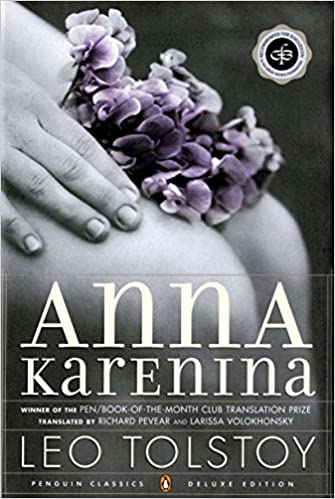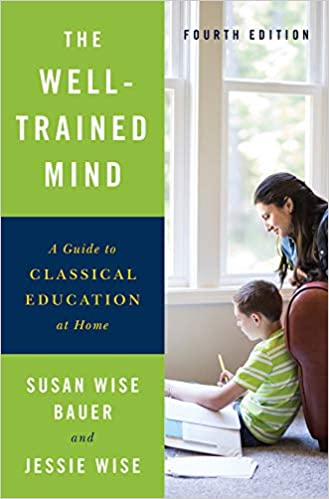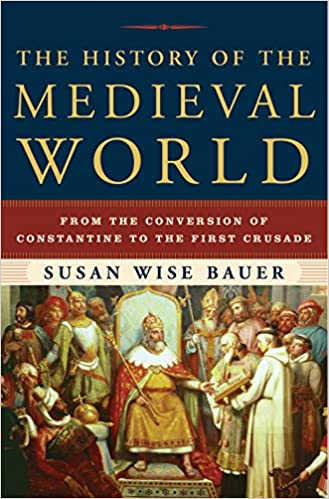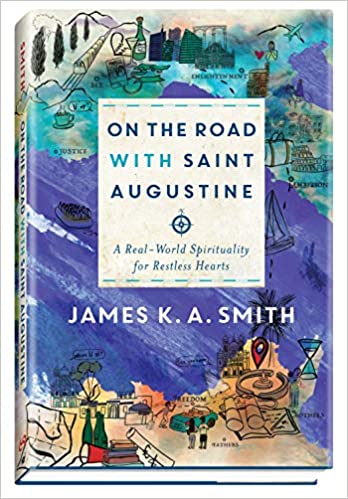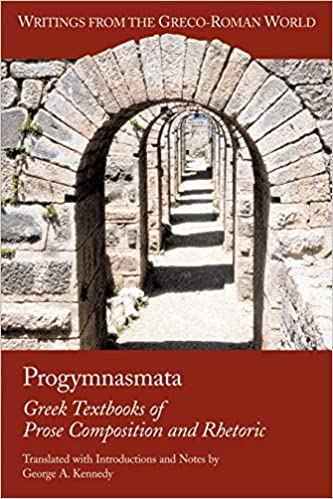Anna Karenina
From Amazon: "Described by William Faulkner as the best novel ever written and by Fyodor Dostoevsky as “flawless,” Anna Karenina tells of the doomed love affair between the sensuous and rebellious Anna and the dashing officer, Count Vronsky. Tragedy unfolds as Anna rejects her passionless marriage and thereby exposes herself to the hypocrisies of society. Set against a vast and richly textured canvas of nineteenth-century Russia, the novel's seven major characters create a dynamic imbalance, playing out the contrasts of city and country life and all the variations on love and family happiness."
More info →The Well-Trained Mind: A Guide to Classical Education at Home
From Amazon:
"The Well-Trained Mind will instruct you, step by step, on how to give your child an academically rigorous, comprehensive education from preschool through high school―one that will train him or her to read, to think, to understand, to be well-rounded and curious about learning. Veteran home educators Susan Wise Bauer and Jessie Wise outline the classical pattern of education called the trivium, which organizes learning around the maturing capacity of the child’s mind and comprises three stages: the elementary school “grammar stage,” when the building blocks of information are absorbed through memorization and rules; the middle school “logic stage,” in which the student begins to think more analytically; and the high-school “rhetoric stage,” where the student learns to write and speak with force and originality. Using this theory as your model, you’ll be able to instruct your child―whether full-time or as a supplement to classroom education―in all levels of reading, writing, history, geography, mathematics, science, foreign languages, rhetoric, logic, art, and music, regardless of your own aptitude in those subjects."
More info →The History of the Medieval World: From the Conversion of Constantine to the First Crusade
From Amazon:
"In her earlier work, The History of the Ancient World, Susan Wise Bauer wrote of the rise of kingship based on might. But in the years between the fourth and twelfth centuries, rulers had to find new justification for their power, and they turned to divine truth or grace to justify political and military action. Right began to replace might as the engine of empire.
Not just Christianity and Islam but also the religions of the Persians, the Germans, and the Mayas were pressed into the service of the state. Even Buddhism and Confucianism became tools for nation building. This phenomenon―stretching from the Americas all the way to Japan―changed religion, but it also changed the state.
The History of the Medieval World is a true world history, linking the great conflicts of Europe to the titanic struggles for power in India and Asia. In its pages, El Cid and Guanggaeto, Julian the Apostate and the Brilliant Emperor, Charles the Hammer and Krum the Bulgarian stand side by side. From the schism between Rome and Constantinople to the rise of the Song Dynasty, from the mission of Muhammad to the crowning of Charlemagne, from the sacred wars of India to the establishment of the Knights Templar, this erudite book tells the fascinating, often violent story of kings, generals, and the peoples they ruled."
More info →On the Road with Saint Augustine: A Real-World Spirituality for Restless Hearts
From Amazon:
"This is not a book about Saint Augustine. In a way, it's a book Augustine has written about each of us. Popular speaker and award-winning author James K. A. Smith has spent time on the road with Augustine, and he invites us to take this journey too, for this ancient African thinker knows far more about us than we might expect.
Following Smith's successful You Are What You Love, this book shows how Augustine can be a pilgrim guide to a spirituality that meets the complicated world we live in. Augustine, says Smith, is the patron saint of restless hearts--a guide who has been there, asked our questions, and knows our frustrations and failed pursuits. Augustine spent a lifetime searching for his heart's true home and he can help us find our way. "What makes Augustine a guide worth considering," says Smith, "is that he knows where home is, where rest can be found, what peace feels like, even if it is sometimes ephemeral and elusive along the way." Addressing believers and skeptics alike, this book shows how Augustine's timeless wisdom speaks to the worries and struggles of contemporary life, covering topics such as ambition, sex, friendship, freedom, parenthood, and death. As Smith vividly and colorfully brings Augustine to life for 21st-century readers, he also offers a fresh articulation of Christianity that speaks to our deepest hungers, fears, and hopes."
More info →Confessions
From Amazon:
"Augustine's fourth-century spiritual autobiography not only is a major document in the history of Christianity, a classic of Roman Africa, and the unchallenged model through the ages for the autobiographical record of the journey to self-knowledge, it also marks a vital moment in the history of Western culture.
As Augustine explains how, when, and why he became the man he is, he probes the great themes that others were to explore after himCfaith, time, truth, identity, and self-understanding--with a richness of detail unmatched in ancient literature. Dense with vivid portrayals of friends, family, colleagues, and enemies, The Confessions chronicles the passage from a life of sensuality and superstition to a genuine spiritual awakening--in a powerful narrative of one man's inner education that continues to shape the way we think and act today."
More info →Progymnasmata: Greek Textbooks of Prose Composition and Rhetoric
For students of classical, medieval, and early modern literature and of the history of education, Kennedy (classics emeritus, U. of North Carolina-Chapel Hill) presents and comments on four Greek treatises for teaching prose composition and elementary rhetoric. They were written during the time of the Roman Empire and studied throughout the Byzantine period; Latin translations of some were used across Europe during the Middle Ages; and one was translated into English in 1563.
More info →Orthodoxy
Orthodoxy (1908) is a book by G. K. Chesterton that has become a classic of Christian apologetics. Chesterton considered this book a companion to his other work, Heretics.
In the book's preface Chesterton states the purpose is to "attempt an explanation, not of whether the Christian faith can be believed, but of how he personally has come to believe it." In it, Chesterton presents an original view of Christian religion. He sees it as the answer to natural human needs, the "answer to a riddle" in his own words, and not simply as an arbitrary truth received from somewhere outside the boundaries of human experience.
More info →
